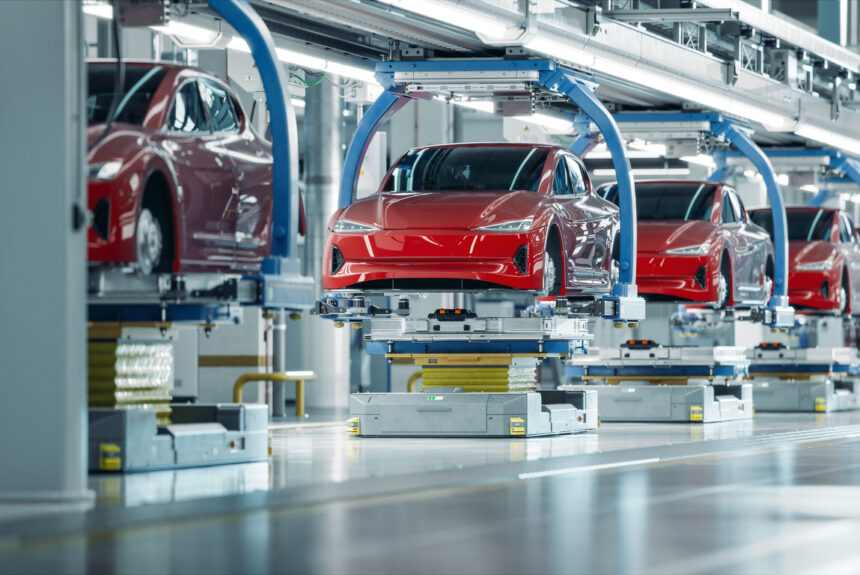Led by the Austrian Economics Center, the Free Market Road Show takes the message of economic liberty to people around the world. This year’s Free Market Road Show theme is shattering barriers and igniting change. At a recent stop at Northwood University in Midland, Michigan, I participated in a panel that posed the question: How should the U.S. and Europe deal with their environmental challenges?
>>>READ: Brimstone is Accelerating Climate-Friendly Cement
The most effective way to address the world’s environmental challenges is to look at them through the lens of markets rather than mandates. This requires an application of the principles of economic freedom. Indeed, property rights, investment freedom, trade freedom and strong institutions are essential for environmental progress. Open, competitive markets will empower producers to provide consumers with more choices, including meeting the market demand for greener products.
Regrettably, the governments of the U.S. and E.U. have given more examples of what not to do.
Policymakers and regulators have designed aspirational programs with goals of net-zero emissions, mandates that a certain percentage of the electric grid be powered by renewable power, and bans on the internal combustion engine.
There are several problems with this approach. Most importantly, they fail to consider individual preferences. Governments telling people what to do through heavy-handed regulations or mandates are costly and unpopular. If people associate environmental policy with being told to eat fewer cheeseburgers and take fewer flights, it’s a loss. These policies are especially unpopular when they’re cloaked in the hypocrisy of politicians telling consumers what to do while failing to abide by the same rules, or crafting carve-outs for their politically preferred constituencies. When government policy overrides those choices, it forces tradeoffs and creates unintended consequences.
Top-down policies that look like “a win” for the planet often have adverse economic and environmental effects. Blocking a pipeline leads to more environmental risks because companies shift the transport of liquid fuels to rail, truck, or ship. Restricting U.S. liquefied natural gas exports or prematurely closing nuclear plants could result in greater use of coal or more emissions-intensive Russian natural gas.
In Europe, forcing farmers to use less fertilizer and reduce livestock count has backfired. The Dutch are world-class farmers and a shining example of how to boost productivity with a smaller environmental footprint. However, environmental regulations would likely put many generational family farms out of business and increase food prices for families. And it’s not just the Dutch. Farmer protests have spanned across Europe. Whether it is energy or agriculture, restricting production from the most environmentally conscious companies will likely result in a worse environmental outcome.
A reasonable question to ask is whether or not society is achieving its intended environmental outcomes and at what cost. As was evident from the yellow vest protests in France a few years ago, protestors were not only frustrated with higher energy costs but the absence of environmental benefits as well. As one protestor put it: “Fuel is already overtaxed and the increase was absolutely not going to pay for climate. That was money for the government’s pockets, and only a bit for climate.”
Another example of costly economic and environmental tradeoffs came from the Japanese government’s decision to close all of its nuclear power plants after the accident at Fukushima. According to a 2020 study from the Cato Institute, the decision resulted in pricier fossil fuel imports and less energy consumption because of the higher prices. The reduced energy use in turn increased mortality rates during very cold temperatures. The authors suggest that “ceasing nuclear energy production has contributed to more deaths than the accident itself.”
>>>READ: 4 Ways AI Will Deliver Energy and Environmental Benefits
How the U.S. and E.U should prioritize environmental policy depends on whether the environmental challenges are local, national, regional, or global. Environmental challenges may be site and situation-specific. Policymakers must consider the broad range of economic, environmental, and social tradeoffs involved. Environmental impacts for one product may include impacts on air quality, water quality, greenhouse gas emissions, land use, water use, and fish and wildlife habitat. Some risks are more well-known and others are less known. Some environmental risks are immediate while others span decades or reach centuries into the future. Those are just some of the environmental tradeoffs – one must also consider the effects on energy prices, food prices, jobs and the economy.
Shattering the policy barriers to innovation and economic freedom is one the most effective ways to address our environmental challenges. There are motivated people around the world who want to reduce food waste, clean up ocean plastics, and reduce the risks of climate change. They want to provide more environmentally friendly products at competitive prices. Markets promote cooperation over conflict. Empowering people is the recipe for a more prosperous and cleaner planet.
Politicians would be served well by the wisdom of Austrian economist Friedrich Hayek who wrote that “the curious task of economics is to demonstrate to men how little they really know about what they imagine they can design.”
The views and opinions expressed are those of the author’s and do not necessarily reflect the official policy or position of C3.
